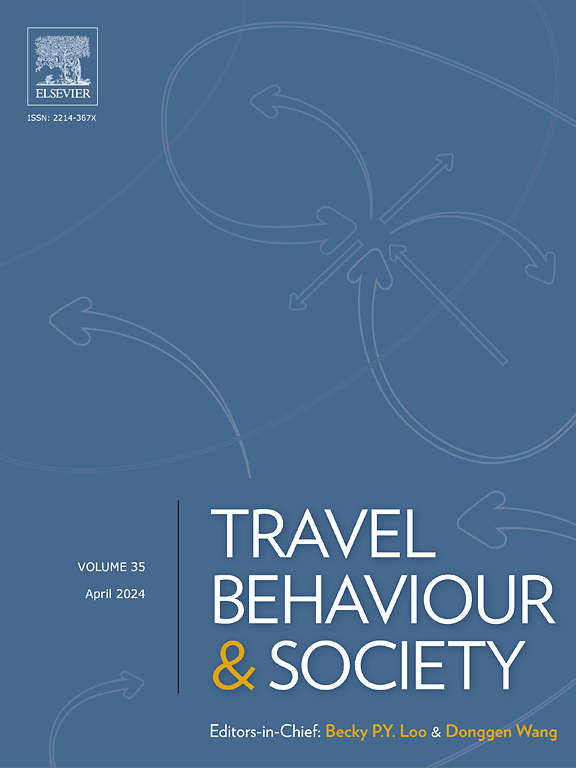将移动性定义为一种服务——包含缺失数据的离散选择框架
IF 5.7
2区 工程技术
Q1 TRANSPORTATION
引用次数: 0
摘要
移动即服务(MaaS)是一个新兴的概念,它使用数字接口集成了各种可持续和共享的模式。目前,它被推广为一种鼓励人们放弃私家车的选择。它在非私家车用户中的偏好尚不清楚。目前的研究使用综合选择和潜在变量(ICLV)框架,对印度昌迪加尔市个人选择由捷运系统(MRTS)、公共汽车和共享自行车组成的Maas套餐的意愿进行了建模。通过假设收入变量在ICLV模型中是潜在的,它解决了收集数据中缺少收入的问题。使用具有正态或对数正态分布的新颖误差公式来指定潜在收入变量的结构和测量方程。在估计的模型中,在结构方程和测量方程中具有对数正态误差分布的乘法模型比在结构方程和测量方程中具有正态误差分布的传统模型具有更好的拟合效果。在各个模型中,发现收入和环境意识显著增加了对MaaS的偏好。此外,我们的研究结果强调,需要提高MaaS订阅中包含的现有共享模式和公共交通的质量。低收入受访者和没有驾照的女性对MaaS的偏好表明,MaaS可以被视为解决交通不平等问题的一种选择,特别是对于那些拥有私家车的机会很低的人。本文章由计算机程序翻译,如有差异,请以英文原文为准。
Defining the role of mobility as a service – A discrete choice framework incorporating missing data
Mobility as a Service (MaaS) is an emerging concept that integrates various sustainable and shared modes using a digital interface. Currently, it is promoted as an option that encourages shift from private vehicles. Its preference among private vehicle non-users is unexplored. The current study models the willingness of individuals to choose a Maas package consisting of Mass Rapid Transit System (MRTS), bus and shared bicycle options in the city of Chandigarh, India using an Integrated Choice and Latent Variable (ICLV) framework. It addresses the issue of missing income, in the data collected, by assuming the income variable to be latent in the ICLV model. The structural and measurement equations of the latent income variable are specified using novel error formulations having either normal or lognormal distributions. Among the models estimated, multiplicative models with lognormal error distribution in the structural and measurement equations were observed to result in a better fit than the conventional model with normal error distributions in both structural and measurement equations. Across models, income and environmental consciousness were found to significantly increase the preference for MaaS. Further, our results highlighted a need for improving the quality of existing shared modes and public transport that are included in the MaaS subscription. The preference for MaaS among low-income respondents, and females, who do not have a driving license, indicated that MaaS can be considered as an option to address the issue of transportation inequity, especially for people having low chances of owning a private vehicle.
求助全文
通过发布文献求助,成功后即可免费获取论文全文。
去求助
来源期刊

Travel Behaviour and Society
TRANSPORTATION-
CiteScore
9.80
自引率
7.70%
发文量
109
期刊介绍:
Travel Behaviour and Society is an interdisciplinary journal publishing high-quality original papers which report leading edge research in theories, methodologies and applications concerning transportation issues and challenges which involve the social and spatial dimensions. In particular, it provides a discussion forum for major research in travel behaviour, transportation infrastructure, transportation and environmental issues, mobility and social sustainability, transportation geographic information systems (TGIS), transportation and quality of life, transportation data collection and analysis, etc.
 求助内容:
求助内容: 应助结果提醒方式:
应助结果提醒方式:


